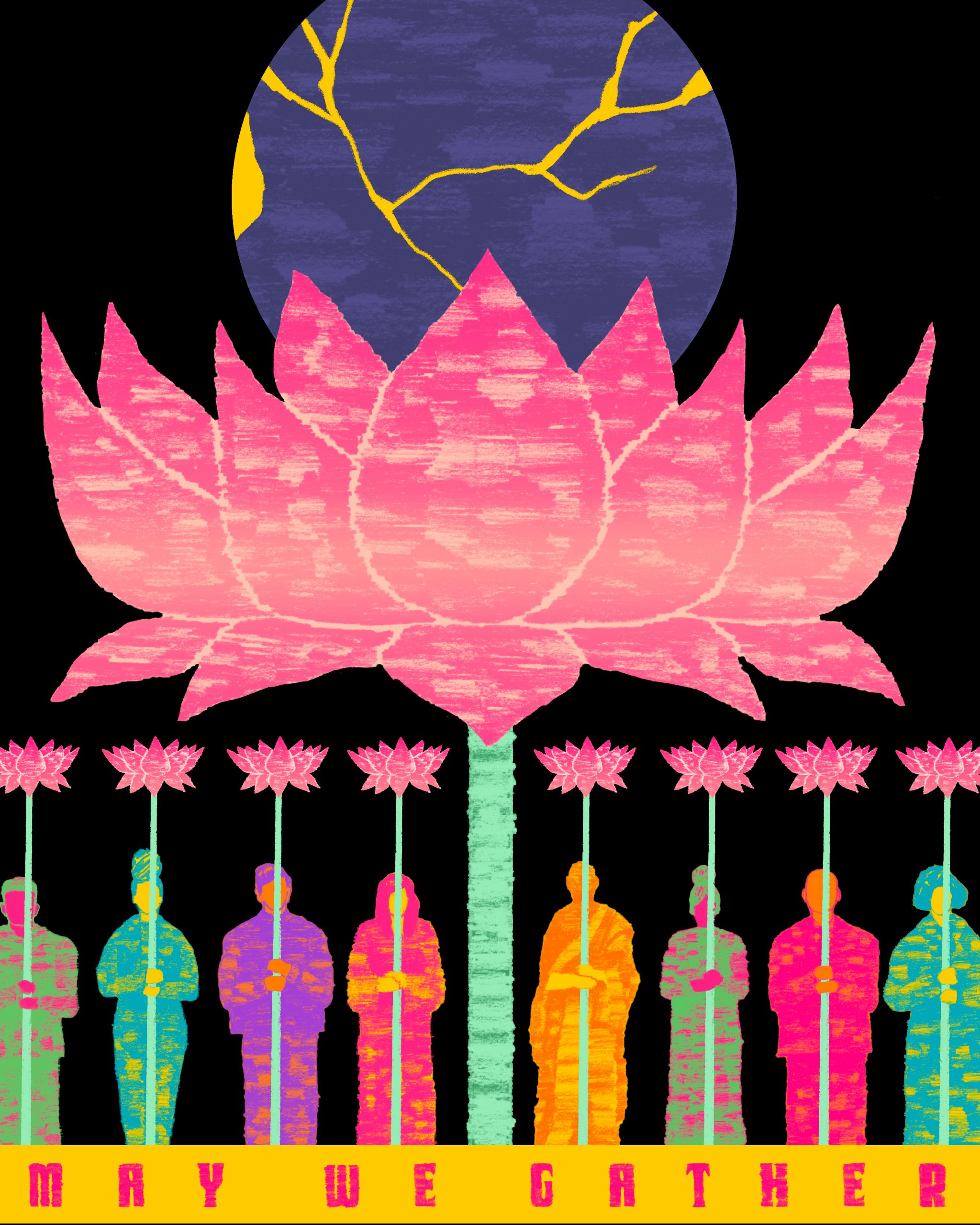We invite you to join us for Resilience, Recovery, Repair, an online speaker series in January and February 2024 funded by a grant from the Asian Pacific American Religions Research Initiative (APARRI) and hosted by May We Gather in collaboration with Tricycle. This series will feature conversations with community elders and leaders, acclaimed historians, archaeologists, educators, and spiritual teachers. Building on discussions generated from the first May We Gather memorial in 2021, this multi-part speaker series explores 19th-century gender and immigrant experience, folk religion and spiritual life, and contemporary projects of restoration and repair in California and beyond.
Resilience, Recovery, Repair will offer insight into the historical and contemporary contexts that shape the March 16, 2024 May We Gather pilgrimage in Antioch, California. Our 2024 pilgrimage will mark the third-year anniversary of the 2021 Atlanta-area spa shootings by situating the lives lost in the tragedy within a broader legacy of anti-Asian racial-religious oppression. The series will feature a diverse range of Buddhist leaders and spiritual friends in a ceremony of commemoration and healing. Registrants will receive a link to recordings of the three talks at the conclusion of the series; these recordings will be made freely available on May We Gather’s YouTube page as well.
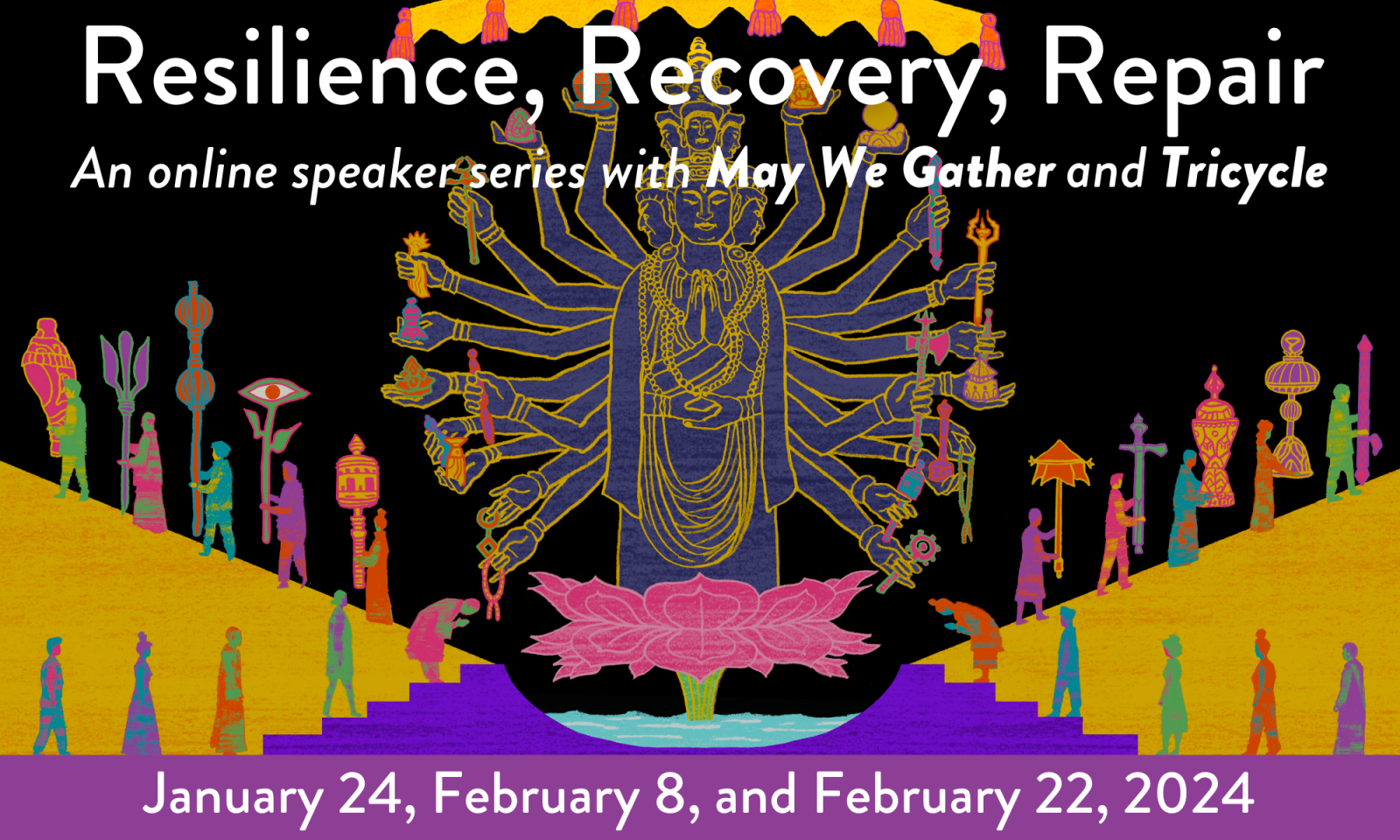
SCHEDULE OF EVENTS
Resilience: A Story of 19th-Century Chinese Immigrants in Antioch and Beyond
Wednesday, January 24, 2024 at 4 P.M. PT / 7 P.M. ET
Moderated by Dr. Duncan Ryuken Williams, “Resilience: A Story of 19th-Century Chinese Immigrants in Antioch and Beyond” sets the historical stage for the May We Gather Pilgrimage, which will take place in Antioch, California on March 16, 2024. Through presentations and conversation, acclaimed author Jean Pfaelzer and community historian Dwayne Eubanks offer insights into 19th-century Chinese immigrant experience, moving from the hyper-local, to state politics, to broader patterns in Asian American experience and community building. Topics will include Antioch’s formation and evolution, the immigration of Chinese laborers and merchants, the positioning of Chinese women in the city and in California Chinatowns more broadly, and Antioch’s contemporary Chinese History Project.
Recovery: The History of America’s Early Buddho-Daoist Temples
Thursday, February 8, 2024 at 4 P.M. PT / 7 P.M. ET
Moderated by Chenxing Han, “Recovery: The History of America’s Early Buddho-Daoist Temples” illuminates the process of cultural and religious recovery through architecture and archives. Together, Drs. Chuimei Ho, Bennett Bronson, and Jonathan H.X. Lee will discuss the vibrant communities and voices engaged in 19th-century California’s thriving traditional Chinese temples and shrines, allowing us to hear more clearly how early Chinese immigrants cultivated their faith, and how faith gave meaning to their daily lives.
Repair: A Path to Healing Land and Ancestors
Thursday, February 22, 2024 at 4 P.M. PT / 7 P.M. ET
Moderated by Dr. Funie Hsu, “Repair: A Path to Healing Land and Ancestors” will consider Asian American Buddhist resilience and recovery alongside the racial karma of settler colonialism and enslavement, as well as the cultivation of spiritual friendship. Panelists Corrina Gould of Sogorea Te’ Land Trust, Christine Cordero of Asian Pacific Environmental Network, and Devin Berry and Noliwe Alexander of Deep Time Liberation discuss Indigenous-, Asian- and Black-led efforts for the repair of land and recovery of ancestral relations as resilient religious practice.
Panel 1: Resilience
Moderator
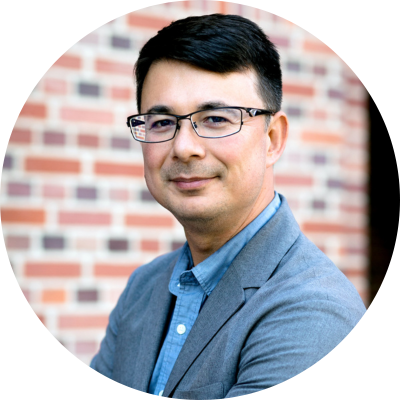
Duncan Ryūken Williams
Duncan Ryūken Williams is a Soto Zen Buddhist priest, Professor of Religion/Director of the Ito Center for Japanese Religions and Culture at the University of Southern California, and is author or editor of ten books, including American Sutra and The Other Side of Zen.
Speakers
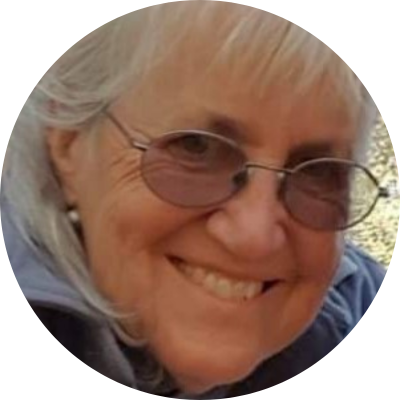
Lucile Meinhardt
Lucile Meinhardt is a retired public librarian. She has a BA in Biology from Rice University, a BS in Education from Ohio State University, and an MLIS from UC Berkeley. After becoming a volunteer and board member of the Antioch Historical Society Museum, led Sesquicentennial history walks in downtown Antioch, including the former Chinatown area; was one of three compilers of the Antioch Sesquicentennial Almanac; and had an active role on the Antioch Chinese History Planning Project committee. Lucile also writes stories for the Museum Gazette newsletter. She has lived in Antioch for fifty-two years. She is kindly filling in for Dwayne Eubanks on this panel.
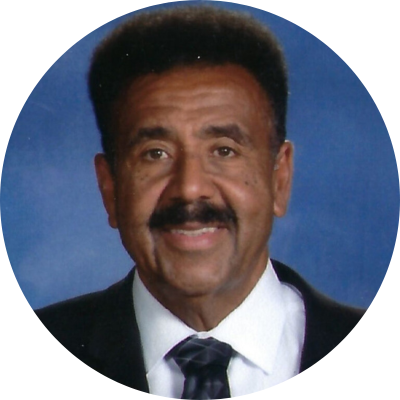
Dwayne Eubanks
Dwayne Eubanks is a community historian and past president of the Antioch Historical Society.
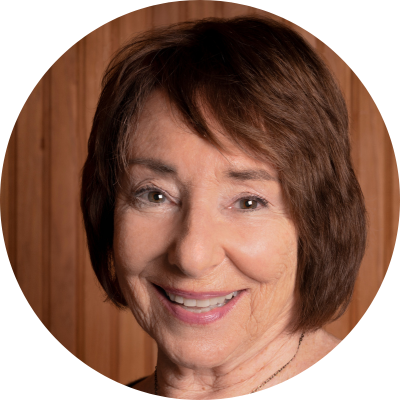
Jean Pfaelzer
Jean Pfaelzer is an internationally recognized scholar and commentator addressing pressing issues of immigration, labor and women. Dedicated to sharing long buried stories in American history with local, national, and international audiences, Jean has authored two award-winning historiographies, California, A Slave State (Yale University Press, 2023) and Driven Out: The Forgotten War Against Chinese Americans (University of California Press, 2007), and has consulted and appeared in PBS/CPBS and CSPAN. She was also on the curatorial team for the first pan-Asian exhibit by the Smithsonian Museum of American History, and has curated exhibits for local historical societies and for the National Women’s History Museum. She writes for Huffington Post, History News Network, and The Globalist. Currently, Jean works with the Eureka Chinatown Project in Eureka, CA and is a member of the “1882 Project on Rural Chinatowns,” consulting with towns on their way to honoring Chinese American history.
Panel 2: Recovery
Moderator
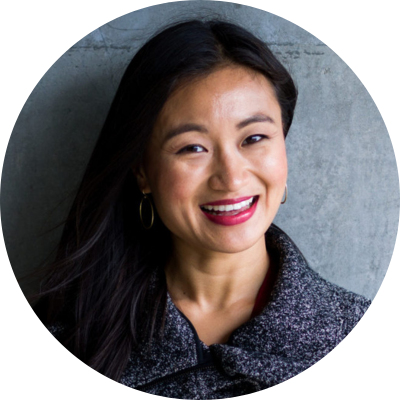
Chenxing Han
Chenxing Han is the author of Be the Refuge: Raising the Voices of Asian American Buddhists and one long listening: a memoir of grief, friendship, and spiritual care.
Speakers
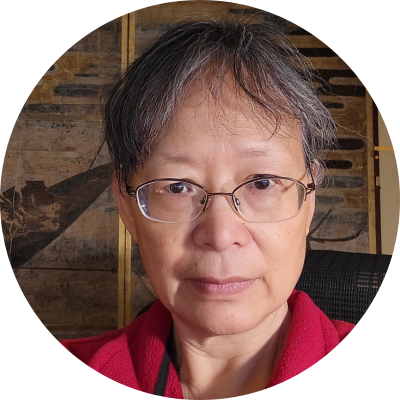
Chuimei Ho 何翠媚
Dr. Chuimei Ho is an archaeologist, researcher, curator, and consultant, whose work has centered ceramic archaeology in East and Southeast Asia and Chinese American history. She received her BA from the University of Hong Kong (1977) and her PhD from the School of Oriental and African Studies, University of London (1984). She was a research fellow at Oxford University (1984–1987). Between 1983 and 1997 she was a principal investigator or deputy director of archaeological projects in Thailand, Indonesia, Hong Kong, and China. Between 1994 and 2007, she worked with the Ashmolean Museum (Oxford), the Denver Museum of Natural History, the Field Museum, as well as museums in Liverpool, Phoenix, Beloit, Orlando, Columbia (SC), and Wake Forest. In 2002 she founded the Chinese American Museum of Chicago. Dr. Ho has published 14 books and more than 50 articles on Chinese and Southeast Asian subjects, many co-authored with Dr. Bennet Bronson.
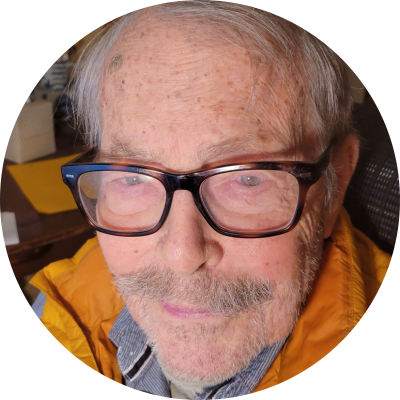
Bennet Bronson
Dr. Bennet Bronson specializes in Chinese American history and in the development of human cultures in East and Southeast Asia. He was involved for many years in archaeological and ethnographic work in Asia. Since 2000, he has focused on the history of Chinese in the Midwest and the Pacific Northwest between 1850 and 1950. Working with Dr. Chuimei Ho, he has visited, studied, and photographed the Chinese American collections of the majority of relevant museums and sites in the western United States and Canada. Ben graduated from Harvard University (1960) and received a PhD in anthropology from the University of Pennsylvania (1976). From 1971 to 2008, he was Curator of Asian Anthropology at Chicago’s Field Museum, and from 1988 to 2007, he served as Adjunct Professor of Anthropology at the University of Illinois at Chicago. e Ben has published a number of articles and four books on China-related topics, the latter co-authored with Dr. Chuimei Ho and has co-edited two Chinese American history websites: www.ccamuseum.org (2004–2008) and www.cinarc.org (2008–present).
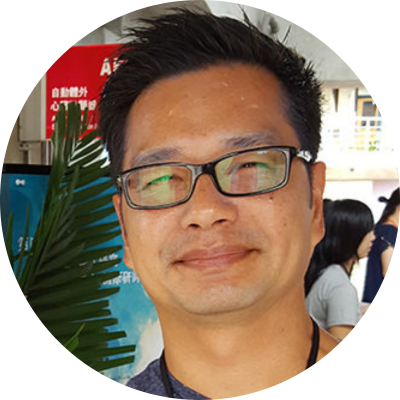
Dr. Jonathan H.X. Lee
Jonathan Lee, PhD, is professor of Asian American studies at San Francisco State University. His family survived the Cambodian genocide and arrived to the United States in 1981 when he was 5 years old. He identifies as Chinese-Vietnamese-and-Cambodian American. He received his doctorate in religious studies from the University of California at Santa Barbara in 2009. He has published 16 books and over 500 articles and essays on Asian American histories, folklore, cultures, and religions. Currently, he serves as editor-in-chief of Chinese America: History & Perspectives, a peer-review journal published by the Chinese Historical Society of America. He is dedicated to anti-racist pedagogy in education, and has been invited by several Silicon Valley corporations and public institutions to speak on issues of equity, inclusion, and diversity.
Panel 3: Repair
Moderator
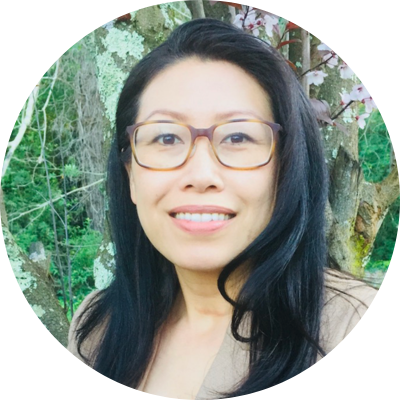
Funie Hsu
Funie Hsu (she/they) is Associate Professor of American Studies at San Jose State University and a heritage Buddhist practitioner in the Taiwanese Humanistic tradition.
Speakers
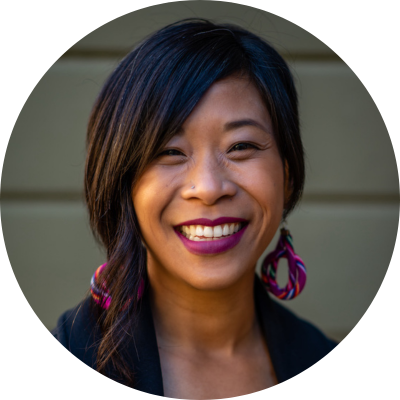
Christine Cordero
Christine Cordero (she/her/siya) was raised by a Filipino immigrant family in the working class town of Pittsburg, California, and acts from the deep belief that we are stronger together and can go farther together than we ever could alone. She is Co-Director of Asian Pacific Environmental Network (APEN), organizing with immigrants and refugees for a healthy environment and thriving economy for all communities. For over 20 years, Christine strategized, organized, and built coalitions across environmental health and justice, workers rights, and economic and racial justice issues. Previously, she was Executive Director at the Center for Story-based Strategy, training 2,000+ people and working with 200+ groups to reinvigorate narrative strategies for social justice. Christine is an ordained priest of the Chozen-ji line of Rinzai Zen, and trains in Oakland, California and Kalihi Valley, Hawaiʻi. She holds a BA in Linguistics from Stanford University, with a focus on language and power.
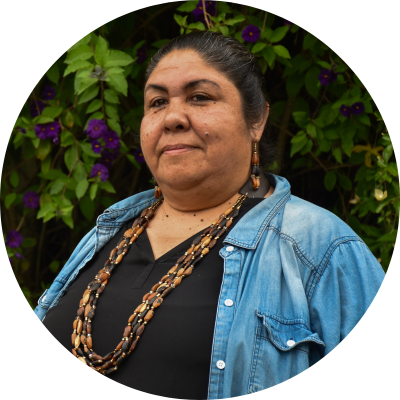
Corrina Gould
Corrina Gould (Tribal Chair for the Confederated Villages of Lisjan Nation), was born and raised in the village of Huichin, now known as Oakland CA. She is the Co-Founder and Lead Organizer for Indian People Organizing for Change, a small Native run organization and the Sogorea Te’ Land Trust, an urban Indigenous women-led organization within her ancestral territory. Through the practices of rematriation, cultural revitalization, and land restoration, the Land Trust calls on Native and non-Native peoples to heal and transform legacies of colonization, genocide, and to do the work our ancestors and future generations are calling us to do.
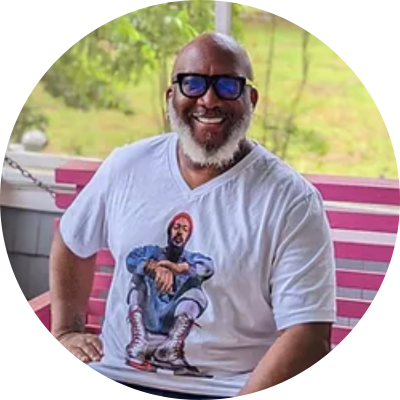
Devin Berry
Beginning his practice in 1999, Devin Berry’s meditation teaching is rooted in the Buddhadharma and mindfulness daily life practices. Devin has trained with Mindfulness-Based Stress Reduction, the East Bay Meditation Center Commit to Dharma Program, Spirit Rock’s Dedicated Practitioners Program, and Insight Meditation Society’s four-year Residential Retreat Teachers Program. Devin started some of the first mindfulness programs in San Francisco Bay Area schools, and before retiring from youth work, he acted as a frontline advocate for marginalized youth living on the streets, and led wilderness camp programs for teens, Rites of Passage programs for tweens, and a summer camp for boys. Devin is co-founder of the Teen Sangha and Men of Color Deep Refuge Group at East Bay Meditation Center in Oakland, and is co-creator of Deep Time Liberation, a healing journey that explores the impact of ancestral legacy and intergenerational trauma on Black Americans. He is passionate about the power of witnessing and storytelling as a liberation tool. Devin is a father and teaches nationally.
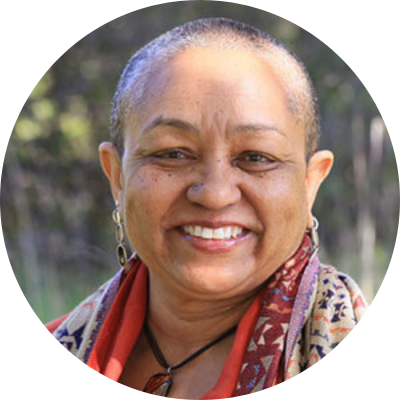
Noliwe Alexander
Noliwe Alexander has been a student of Vipassana meditation for over 20 years. Throughout this time of deep devotion to the Dharma, Noliwe has become a dedicated practitioner, meditation teacher of various retreats and sitting groups, day-longs and class series programs. She dedicates her BuddhaDharma practice and teachings to the BiPOC, LGBTQIA+, and at-risk and elder communities. She is a graduate of Spirit Rock’s CDL4 program, EBMC’s Commit 2 Dharma program in 2010 and is a graduate of Spirit Rock Teacher Training from 2017–2020. Noliwe is the founder of Peace At Any Pace, Inc., a non-profit organization that offers a Journey to Healing from Intergenerational & Ancestral Trauma retreats and Elder & Youth programs, which are exclusively for people from the African Diaspora. Noliwe is a wisdom keeper and humbled by the presence of her ancestor’s spirit that lives within and walks beside her.

